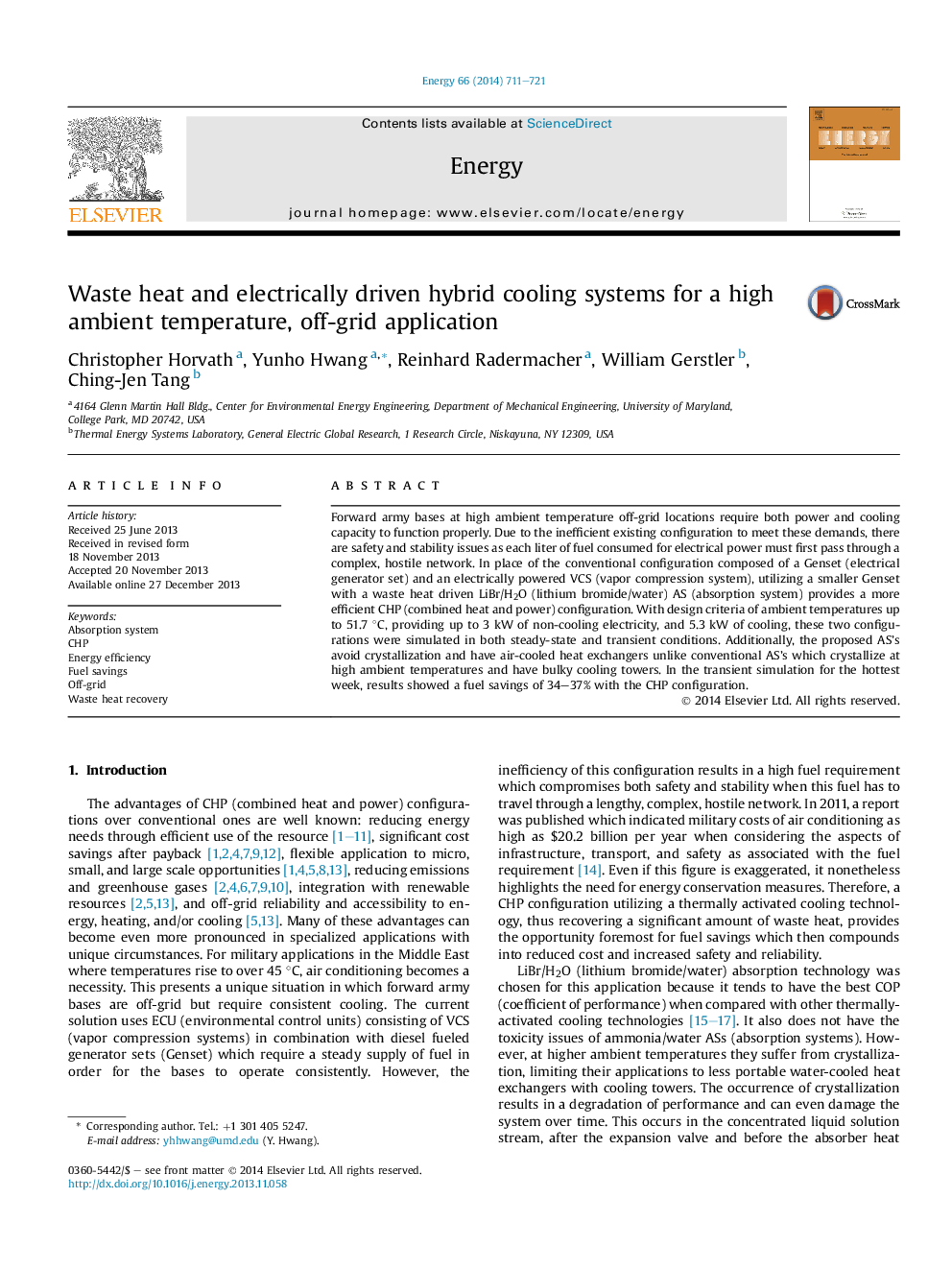| Article ID | Journal | Published Year | Pages | File Type |
|---|---|---|---|---|
| 8078547 | Energy | 2014 | 11 Pages |
Abstract
Forward army bases at high ambient temperature off-grid locations require both power and cooling capacity to function properly. Due to the inefficient existing configuration to meet these demands, there are safety and stability issues as each liter of fuel consumed for electrical power must first pass through a complex, hostile network. In place of the conventional configuration composed of a Genset (electrical generator set) and an electrically powered VCS (vapor compression system), utilizing a smaller Genset with a waste heat driven LiBr/H2O (lithium bromide/water) AS (absorption system) provides a more efficient CHP (combined heat and power) configuration. With design criteria of ambient temperatures up to 51.7 °C, providing up to 3 kW of non-cooling electricity, and 5.3 kW of cooling, these two configurations were simulated in both steady-state and transient conditions. Additionally, the proposed AS's avoid crystallization and have air-cooled heat exchangers unlike conventional AS's which crystallize at high ambient temperatures and have bulky cooling towers. In the transient simulation for the hottest week, results showed a fuel savings of 34-37% with the CHP configuration.
Related Topics
Physical Sciences and Engineering
Energy
Energy (General)
Authors
Christopher Horvath, Yunho Hwang, Reinhard Radermacher, William Gerstler, Ching-Jen Tang,
